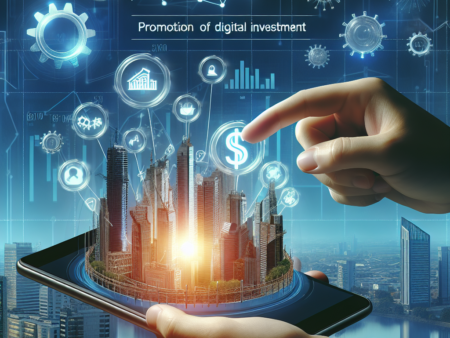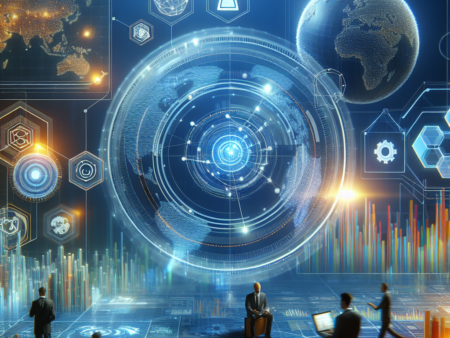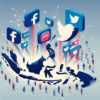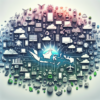Digitalisasi UMKM: Menghubungkan UMKM Nusantara ke pasar global.
Digitalisasi UMKM: Menjangkau Pasar Global dari Nusantara
-
Table of Contents
- Introduction
- The Digital Landscape in Indonesia
- Internet Penetration
- Smartphone Adoption
- The Benefits of Digitalization for UMKM
- Expanded Market Reach
- Cost-Effective Marketing
- Improved Customer Engagement
- Access to Data and Analytics
- Challenges and Solutions
- Limited Digital Skills
- Infrastructure and Connectivity
- Trust and Security
- Success Stories
- Conclusion
Introduction
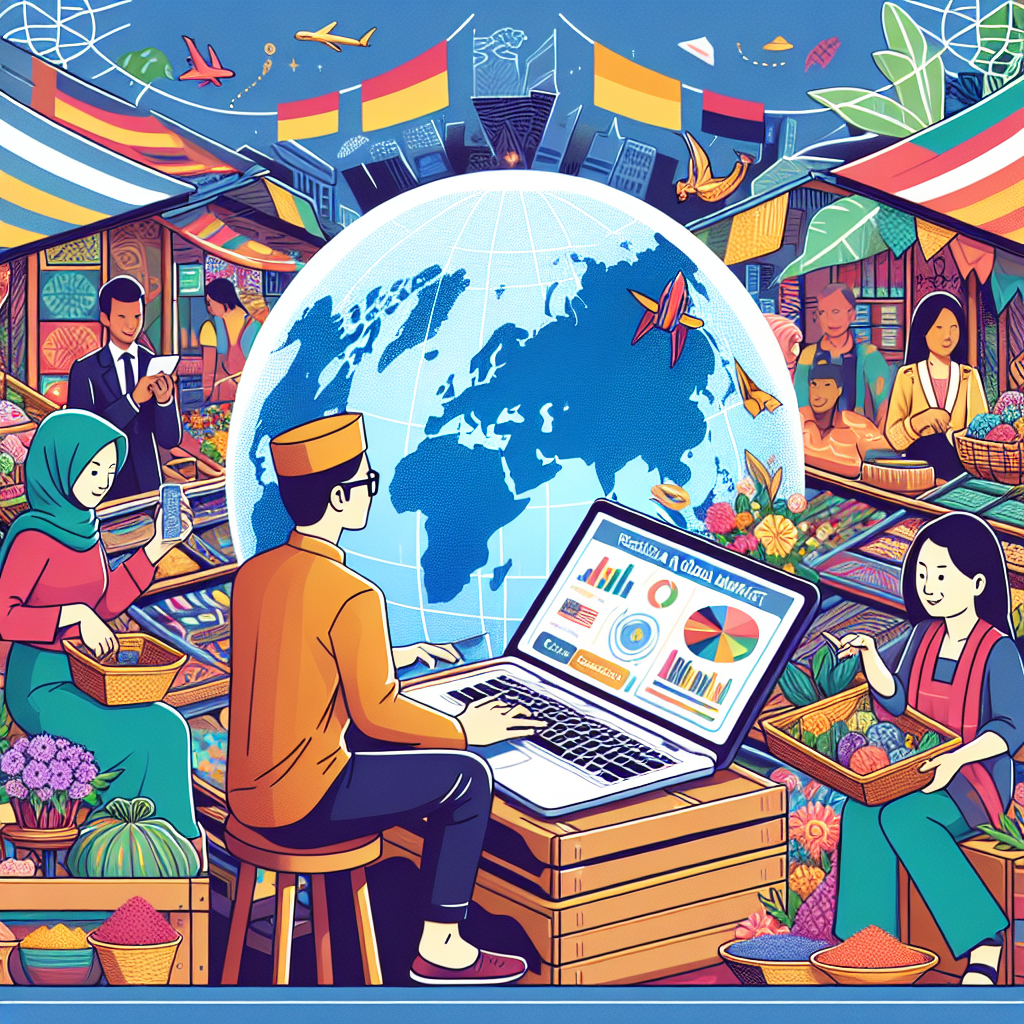
Digitalisasi UMKM: Menjangkau Pasar Global dari Nusantara
In today’s interconnected world, digitalization has become a crucial factor in the success of businesses, including micro, small, and medium enterprises (UMKM). With the advancement of technology and the widespread use of the internet, UMKM in Indonesia have the opportunity to expand their reach beyond the local market and tap into the global market. This article explores the importance of digitalization for UMKM in Indonesia and how it can help them reach global markets from the archipelago.
The Digital Landscape in Indonesia
Indonesia, with its vast population and growing middle class, presents a significant market for UMKM. However, the traditional brick-and-mortar approach to business limits the reach of these enterprises. This is where digitalization comes into play. According to a report by Google and Temasek, Indonesia’s digital economy is projected to reach $130 billion by 2025, driven by increased internet penetration and smartphone adoption.
Internet Penetration
Internet penetration in Indonesia has been steadily increasing over the years. As of 2021, around 73% of the population has access to the internet. This presents a massive opportunity for UMKM to leverage digital platforms and reach a wider audience. With the majority of the population being active internet users, businesses can tap into this market by establishing an online presence.
Smartphone Adoption
Smartphone adoption has also been on the rise in Indonesia. The affordability of smartphones and the availability of affordable data plans have contributed to the widespread use of mobile devices. This trend opens up new avenues for UMKM to connect with potential customers through mobile apps and optimized websites. By embracing mobile technology, UMKM can enhance their visibility and accessibility to a global audience.
The Benefits of Digitalization for UMKM
Digitalization offers numerous benefits for UMKM in Indonesia, enabling them to compete on a global scale. Here are some key advantages:
Expanded Market Reach
One of the primary advantages of digitalization is the ability to reach a broader market. By establishing an online presence, UMKM can transcend geographical boundaries and connect with customers from around the world. This opens up new opportunities for growth and revenue generation.
Cost-Effective Marketing
Traditional marketing methods can be costly for UMKM with limited resources. Digital marketing, on the other hand, provides cost-effective alternatives. Social media platforms, search engine optimization (SEO), and targeted online advertising allow UMKM to promote their products or services to a specific audience without breaking the bank.
Improved Customer Engagement
Digitalization enables UMKM to engage with customers in a more personalized and interactive manner. Through social media platforms and online chat support, businesses can address customer queries, provide real-time assistance, and build stronger relationships. This level of engagement fosters customer loyalty and enhances the overall customer experience.
Access to Data and Analytics
Digital platforms provide UMKM with valuable data and analytics that can inform business decisions. By analyzing customer behavior, preferences, and purchasing patterns, UMKM can tailor their offerings to meet market demands more effectively. This data-driven approach allows businesses to stay competitive and adapt to changing market trends.
Challenges and Solutions
While digitalization offers immense opportunities, UMKM in Indonesia also face challenges in embracing this transformation. Here are some common challenges and potential solutions:
Limited Digital Skills
Many UMKM lack the necessary digital skills to navigate the online landscape effectively. To address this, the government and private organizations can provide training programs and workshops to enhance digital literacy among UMKM owners and employees. This will empower them to leverage digital tools and platforms more efficiently.
Infrastructure and Connectivity
In some remote areas of Indonesia, access to reliable internet connectivity may be limited. To overcome this challenge, the government can invest in improving infrastructure and expanding internet coverage to ensure that UMKM in all regions can benefit from digitalization. Additionally, partnerships with telecommunications companies can help provide affordable data plans to encourage internet usage.
Trust and Security
Building trust and ensuring security in online transactions is crucial for UMKM to succeed in the digital realm. The government can establish regulations and standards to protect consumers and businesses from fraud and cyber threats. UMKM can also invest in secure payment gateways and display trust seals on their websites to instill confidence in potential customers.
Success Stories
Several UMKM in Indonesia have successfully embraced digitalization and expanded their reach to global markets. One such example is Batik Fractal, a small business that produces unique batik patterns. Through their online store and social media presence, Batik Fractal has attracted customers from various countries, boosting their sales and brand recognition.
Another success story is Kulina, a food delivery startup that connects home cooks with customers. By leveraging mobile apps and digital marketing strategies, Kulina has grown rapidly and gained popularity among urban consumers. Their success demonstrates the potential of digitalization for UMKM in the food industry.
Conclusion
Digitalization presents a significant opportunity for UMKM in Indonesia to expand their reach and tap into global markets. With the increasing internet penetration and smartphone adoption, businesses can leverage digital platforms to connect with a wider audience. The benefits of digitalization, such as expanded market reach, cost-effective marketing, improved customer engagement, and access to data, are crucial for UMKM to compete on a global scale.
While challenges exist, such as limited digital skills, infrastructure issues, and trust and security concerns, these can be overcome through government support, training programs, and partnerships with relevant stakeholders. Success stories like Batik Fractal and Kulina demonstrate the transformative power of digitalization for UMKM in Indonesia.
In conclusion, UMKM in Indonesia must embrace digitalization to unlock their full potential and reach global markets from the archipelago. By harnessing the power of technology and the internet, UMKM can thrive in the digital era and contribute to the growth of Indonesia’s economy.
